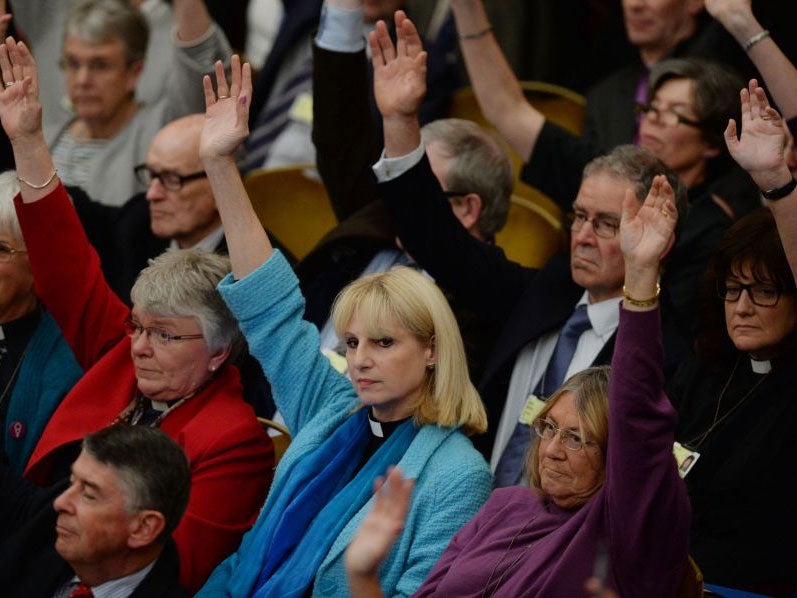Rev Emma Percy interview: Why I refer to God as a 'she'
The feminine pronouns are not intended to replace the male ones, but to broaden people’s experiences' of God, she says

As a member of Women and the Church (Watch), the pressure group that pressed for the ordination of female bishops, the Rev Emma Percy is a proud feminist.
But the Chaplain of Trinity College Oxford raised eyebrows earlier this year when she announced that she wanted to combat sexism in the Church of England by referring to God as “She”.
By using exclusively male language to describe God, the Church is reinforcing the idea that God is like a man, the implication being that women are less holy, Dr Percy argued. “Some people said it’s making an unnecessary fuss, but there is the sense still in the Church that women are there under an agreement that says it’s perfectly reasonable for people to think we should not be,” she told i, adding that “some people probably think I should shut up”.
She’s not being paranoid; Dr Percy has been the recipient of piles of letters, the sentiments of which are decidedly un-Christian.
“Some said I was stupid… some were a little more offensive. I was interested that it stirred people up so much. The really good thing was that it got conversations going.”
Dr Percy encourages churchgoers to write prayers and liturgies using female pronouns and imagery when reflecting on “our Mother God”.
The feminine pronouns are not intended to replace the male ones, but to “broaden people’s experiences” of God, she said.
Dr Percy and Watch are hopeful they will be able to prove to those who write the Church’s liturgies that this is not just an issue for “a small, peculiar group”, but for “many more people in the wider community”.
“I have a very strong faith that has sustained me through a lot of ups and downs. I would like people to be able to find that same faith and excitement in God. That means we have to give people… the ability to make a connection between God and their own lives. For a lot of women that means they need to be able to have a sense God understands and values who they are,” Dr Percy said.
“There are ongoing conversations to make sure the Liturgical Commission are aware this is still an issue. How far up the agenda that is, I’m not sure, but we will keep saying this matters.”
Subscribe to Independent Premium to bookmark this article
Want to bookmark your favourite articles and stories to read or reference later? Start your Independent Premium subscription today.

Join our commenting forum
Join thought-provoking conversations, follow other Independent readers and see their replies